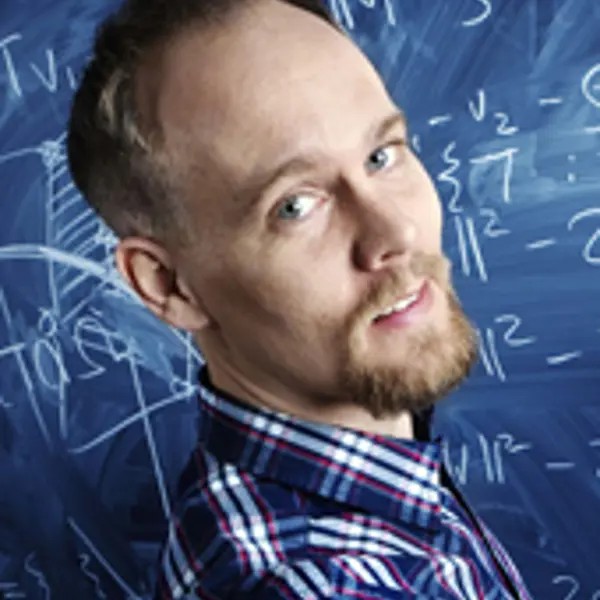Anders Logg

Visar 98 publikationer
Towards a Comprehensive Workflow for Mesh Generation in Urban Wind Engineering using CFD
Space-time CutFEM on overlapping meshes I: simple continuous mesh motion
The Role of Computational Fluid Dynamics within City Digital Twins: Opportunities and Challenges
Towards Urban Digital Twins: A Workflow for Procedural Visualization Using Geospatial Data
Non-intrusive Weather Analysis for Sustainable Preservation in Cultural Heritage Buildings
Data Collection and Wrangling Towards Machine Learning in LoD2+ Urban Models Generation
GECo: A collection of solvers for the self-gravitating Vlasov equations
Roof Segmentation Towards Digital Twin Generation in LoD2+Using Deep Learning
Using the Octree Immersed Boundary Method for urban wind CFD simulations
Digital Twin Cities: Multi-Disciplinary Modeling and High-Performance Simulation of Cities
Modeling and Simulating Cities with Digital Twins
Combining Open Source and Commercial Tools in Digital Twin for Cities Generation
Digital Twins for Cities: A State of the Art Review
Visualisering och auralisering av buller i stadsmiljö
A Multimesh Finite Element Method for the Stokes Problem
Finite element simulation of physical systems in augmented reality
Multimesh finite elements with flexible mesh sizes
Cosmic string and black hole limits of toroidal Vlasov bodies in general relativity
Multimesh finite element methods: Solving PDEs on multiple intersecting meshes
Adaptive Computational Methods for Parabolic Problems
Solving Poisson’s Equation on the Microsoft HoloLens
Moving Mesh and Image Registration in FEniCS
On axisymmetric and stationary solutions of the self-gravitating Vlasov system
High Order Cut Finite Element Methods for the Stokes Problem
A Nitsche-Based Cut Finite Element Method for a Fluid--Structure Interaction Problem
The FEniCS Project Version 1.5
Periodic Table of the Finite Elements
A stabilized Nitsche overlapping mesh method for the Stokes problem
A Stabilized Nitsche Fictitious Domain Method for the Stokes Problem
Automated goal-oriented error control i: Stationary variational problems
Quantifying the Computability of the Lorenz System Using a posteriori analysis
UFC: a Finite Element Code Generation Interface
Automated solution of differential equations by the finite element method : the FEniCS book
Tensor Representation of Finite Element Variational Forms
An adaptive finite element splitting method for the incompressible Navier-Stokes equations
Finite Element Variational Forms
Discrete Optimization of Finite Element Matrix Evaluation
Common and Unusual Finite Elements
FErari: an Optimizing Compiler for Variational Forms
DOLFIN: a C++/Python Finite Element Library
A Comparison of Finite Element Schemes for the Incompressible Navier-Stokes Equations
A Reference Solution for the Lorenz System on [0, 1000]
Building Flexible User Interfaces for Solving PDEs
DOLFIN: Automated finite element computing
Towards an Implementation of Nitsche's Method on Overlapping Meshes in 3D
Unified framework for finite element assembly
Past and Future Perspectives on Scientific Software
Efficient representation of computational meshes
Efficient assembly of H(div) and H(curl) conforming finite elements
Simulating Heart Valve Dynamics in FEniCS
Benchmarking domain-specific compiler optimizations for variational forms
Collaborative Computational Frameworks and the Growth Problem
Automated code generation for discontinuous galerkin methods
Multiscale Modeling of the Acoustic Properties of Lung Parenchyma
Automated Computational Modelling for Solid Mechanics
An Overview of the FEniCS Project
Trends in Computational Mechanics Software
Algorithms and data structures for multi-adaptive time-stepping
Efficient compilation of a class of variational forms
Automated Solution of Differential Equations
A Hybrid Approach to Efficient Finite Element Code Development
Automating the finite element method
A compiler for variational forms
Topological optimization of the evaluation of finite element matrices
Multiadaptive Galerkin methods for ODEs III: A priori error estimates
Optimizing the evaluation of finite element matrices
Computational modeling of dynamical systems
Dreams of Calculus: perspectives on mathematics education
Multi-adaptive time integration
Adaptive Computational Methods for Parabolic Problems
Explicit time-stepping for stiff ODEs
Multi-adaptive Galerkin methods for ODEs I
Multi-adaptive Galerkin methods for ODEs II: Implementation and applications
Topics in Adaptive Computational Methods for Differential Equations
Ladda ner publikationslistor
Du kan ladda ner denna lista till din dator.
Filtrera och ladda ner publikationslista
Som inloggad användare hittar du ytterligare funktioner i MyResearch.
Du kan även exportera direkt till Zotero eller Mendeley genom webbläsarplugins. Dessa hittar du här:
Zotero Connector
Mendeley Web Importer
Tjänsten SwePub erbjuder uttag av Researchs listor i andra format, till exempel kan du få uttag av publikationer enligt Harvard och Oxford i .RIS, BibTex och RefWorks-format.
Visar 11 forskningsprojekt
GAIA: AI för insamling av grundläggande geodata
Virtual City.Unreal Engine-utveckling inom Digital Twin Cities Centre
Effektivare förvaltning och underhåll av infrastruktur med augmented reality
SensIT – Sensorstyrd molnbaserad förvaltningsstrategi av infrastruktur
Matematik för elektronstrålesmältning: 3D-skrivning i metall
Automated uncertainty quantification for numerical solutions of partial differential equations
Rumtidsdiskretisering av multifysikproblem på rörliga geometrier